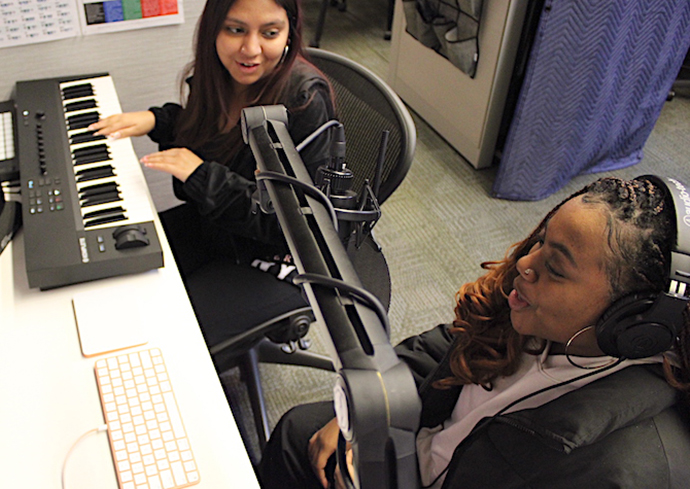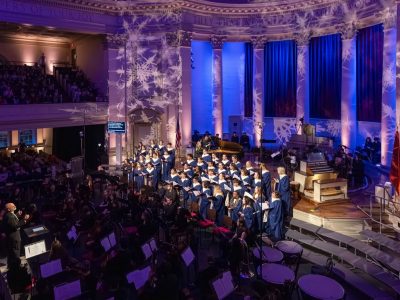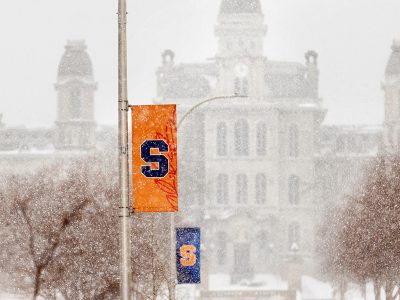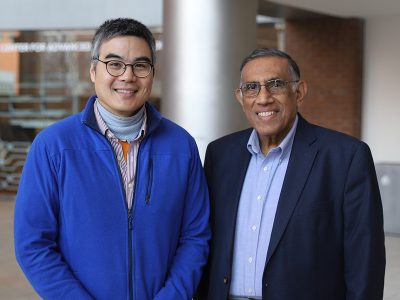'The Barriers Have Been Removed!' New Research Explores the Rise of Digital Music-Making in Schools During COVID-19
You are probably familiar with traditional school music learning. Starting in elementary grades with simple instruments such as recorders and xylophones through to chorus and jazz and marching bands in high school, music teaching often involves large ensemble instruction with one teacher addressing many students playing live instruments.
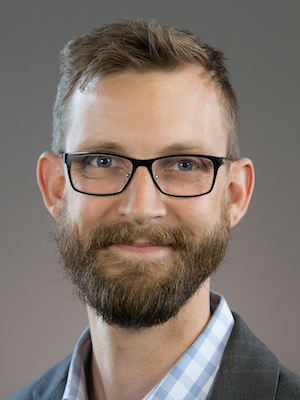
Modern music technology—and in particular digital audio workstations (DAWs), such as Garage Band or Soundtrap—are changing that paradigm. But by how much and to what end?
New research by David Knapp, assistant professor of music education in the School of Education and College of Visual and Performing Arts, sets out to assess the extent to which creating, arranging and storing digital music online has increased in music education classrooms, especially during and after the coronavirus pandemic that sent learning online in 2020-2021.
In doing so, Knapp is exploring how affordable DAWs are making music education more democratic, equitable and inclusive; how they are shifting music education away from performance toward computer-mediated creativity and composition that may appeal to more students; and how big data collected on their use—given that students’ creative behaviors are automatically encoded—can give researchers new insights into music learning that were once unfathomable.
“As practices and practitioners in our field move farther into digital spaces, we will need to develop new research methodologies that respond to these new spaces and attend to the different ways music making and learning are taking place,” says Knapp and his co-authors in “Soundtrap During COVID-19: A Machine-learning Approach to Assess the Effects of the Pandemic on Music Education” (Research Studies in Music Education, 2023).
Knapp sat down to explain the background of this research project, why he chose to study Soundtrap’s use, how his research is being applied to his teaching and practice, and the exciting future of digital music-making in schools.
